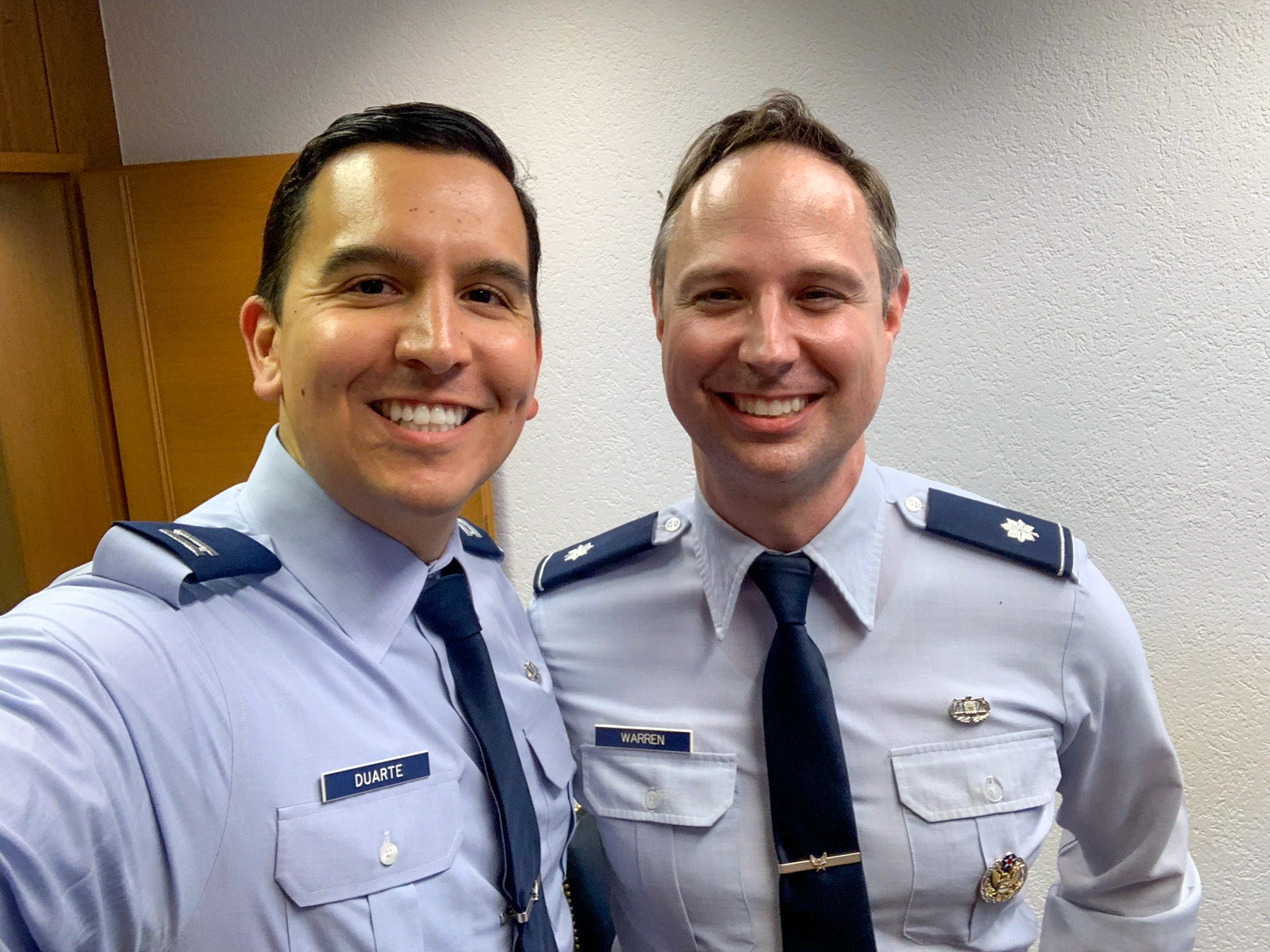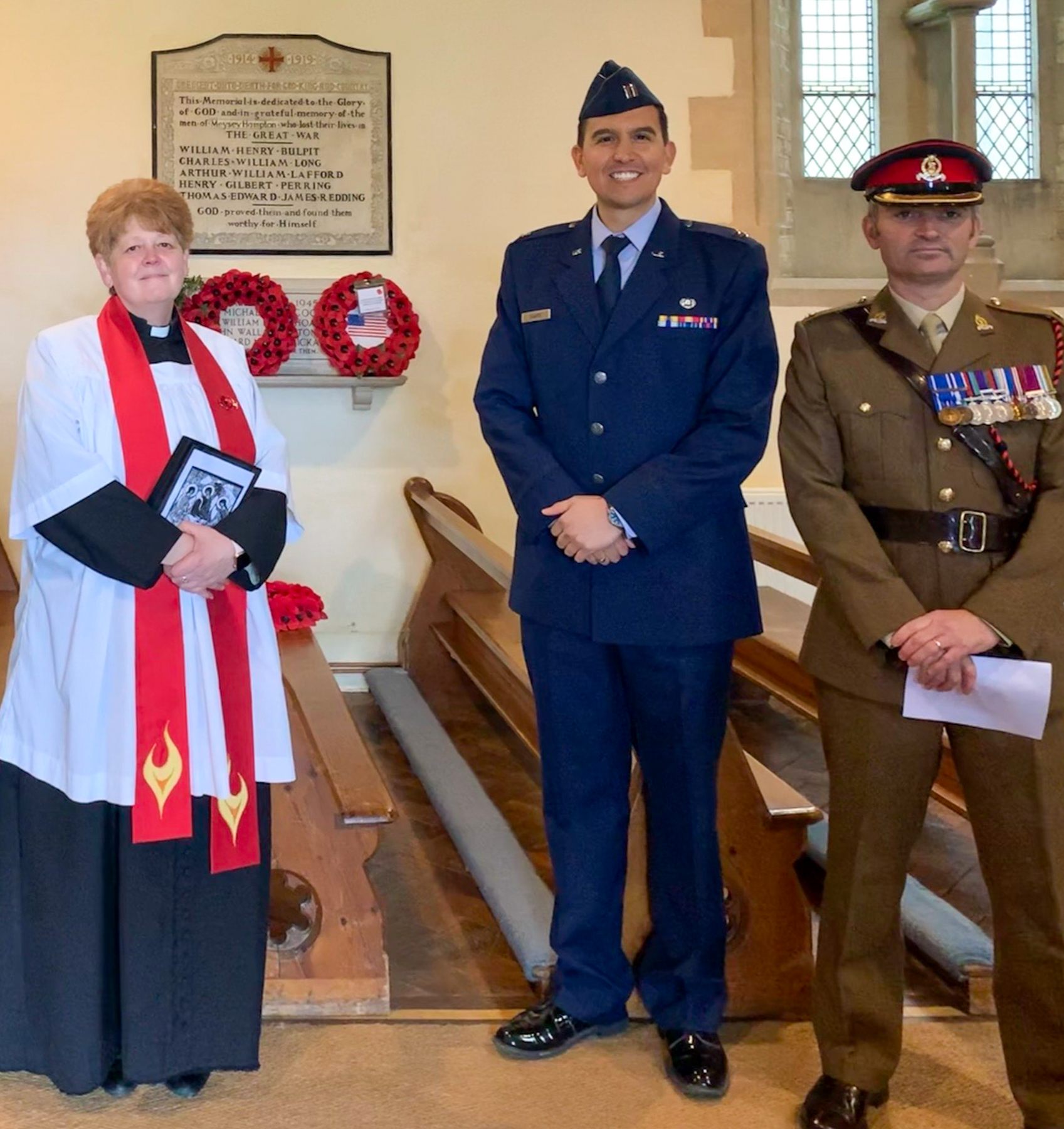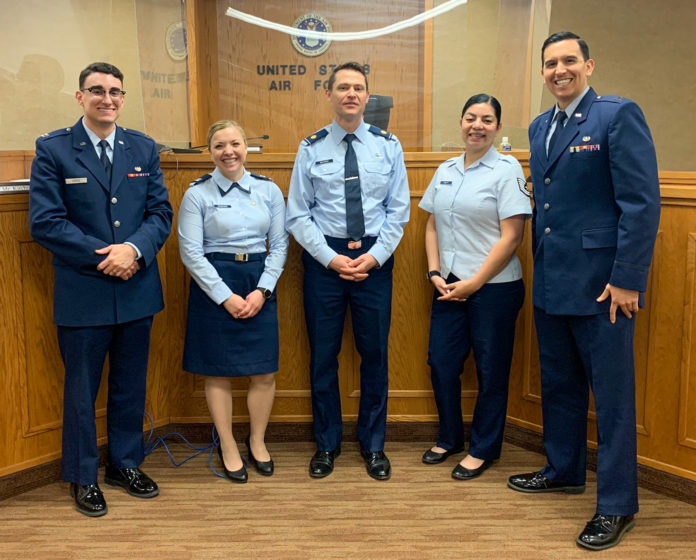To some, it seemed that the two degrees Fabiani Duarte pursued at Mercer University — law and theology — were incompatible.
“I had a friend, a Methodist pastor, who would tell me, ‘Well, with those degrees, you can either keep them out of jail or keep them out of hell,’” Duarte said. “But I saw that it was much more than that.”
Duarte earned his Juris Doctor degree from Mercer Law in 2016 and his Master of Arts in Christian Ministry from the McAfee School of Theology in 2017. During his third year of law school and first year of seminary, he worked on the two degrees simultaneously.
On his first day of law school, Duarte and his fellow classmates swore an oath to be “ministers of justice.” Through his law and theology studies, Duarte began to realize what that meant for him.
He saw his role in the law not just as one of picking winners and losers but as a doctor or pastor who heals and “ensures that people, both victims and the accused, remember that they have a right to a new beginning and that they have value and that they are bigger than the worst thing that’s ever happened to them or the worst thing that they’ve ever done.”
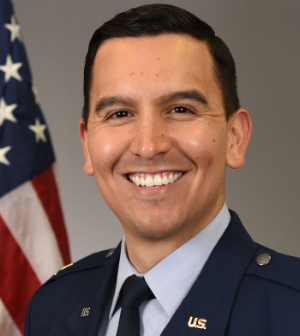
Today, Duarte is a captain in the U.S. Air Force Judge Advocate General’s (JAG) Corps and serves as deputy chief of military justice at Ramstein Air Base in Germany. In this role, he prosecutes service members accused of crimes. He also co-leads a chapel service on base.
Duarte previously served as a special victims’ counsel for the European Circuit, providing independent legal representation to victims of sexual and physical assault. His first assignment in the military was as chief of legal assistance and chief of civil law at Holloman Air Force Base in New Mexico.
Duarte spoke with The Den on his own behalf, and his views do not necessarily reflect those of the Air Force.
During his two years as special victims’ counsel, Duarte represented over 90 victims of sexual assault. The role required him to use skills learned in both the law and theology school.
“The majority of that work with victim clients resembled pastoral care,” he said. “I had to serve as an interpreter of the law to abused military members, victimized spouses or civilians, and child clients who had been through terribly traumatic experiences.”
This meant helping victims write their impact statements presented in court, sitting with them in investigative interviews, advising them on questions they were asked, and guiding them through the complex and difficult prosecutorial process.
“Being at the tip of the spear as a special victims’ counsel allowed me to really see how important it is to have that advocate for victims, who are already dealing with one of the worst nightmares of their lives … and trying to determine: Is this the path to justice that I want?” Duarte said. “I think really that last point is the biggest thing that this whole experience has taught me — the idea of clearly and honestly defining, ‘What is justice for you?’ Because it’s so different for everybody.”
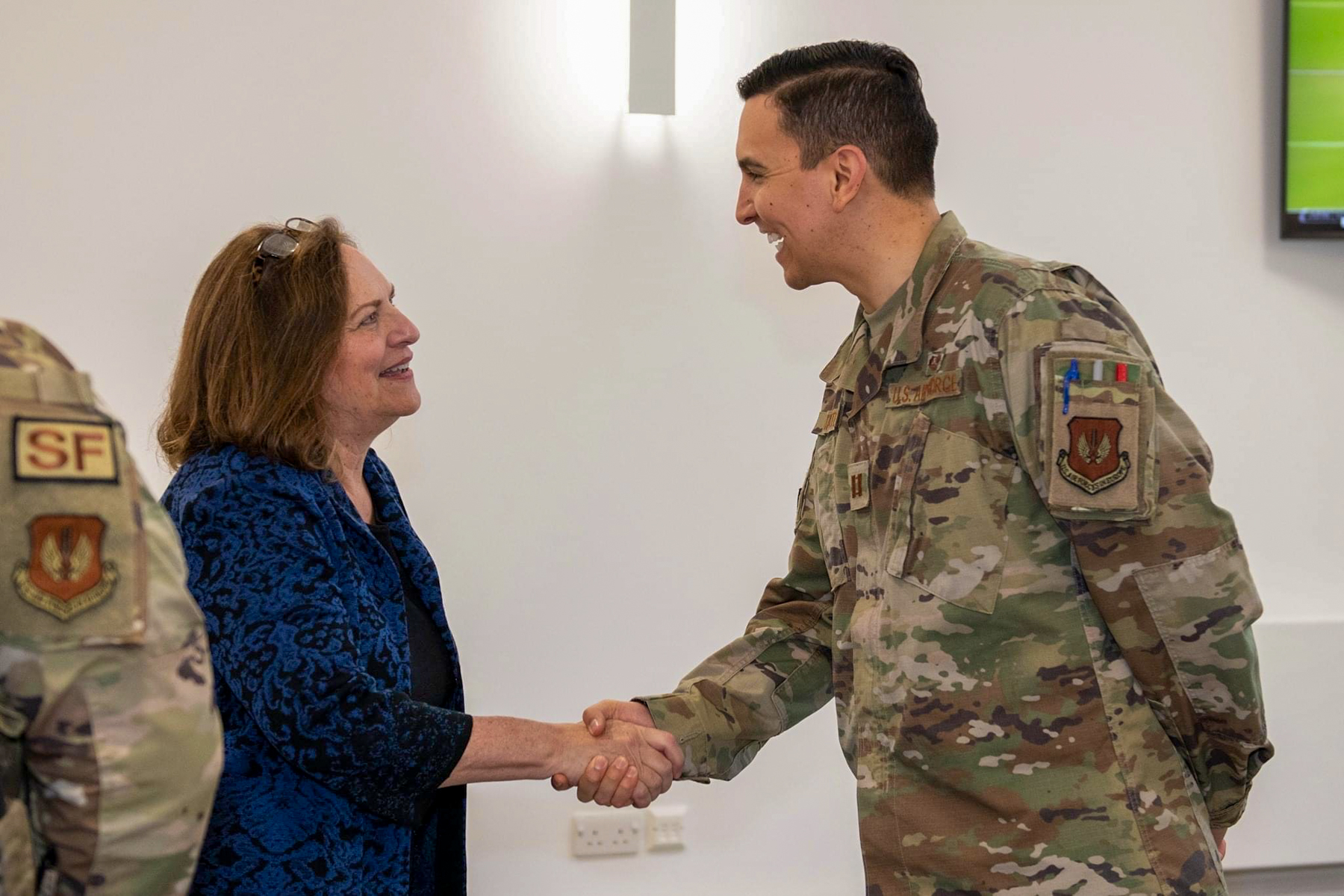
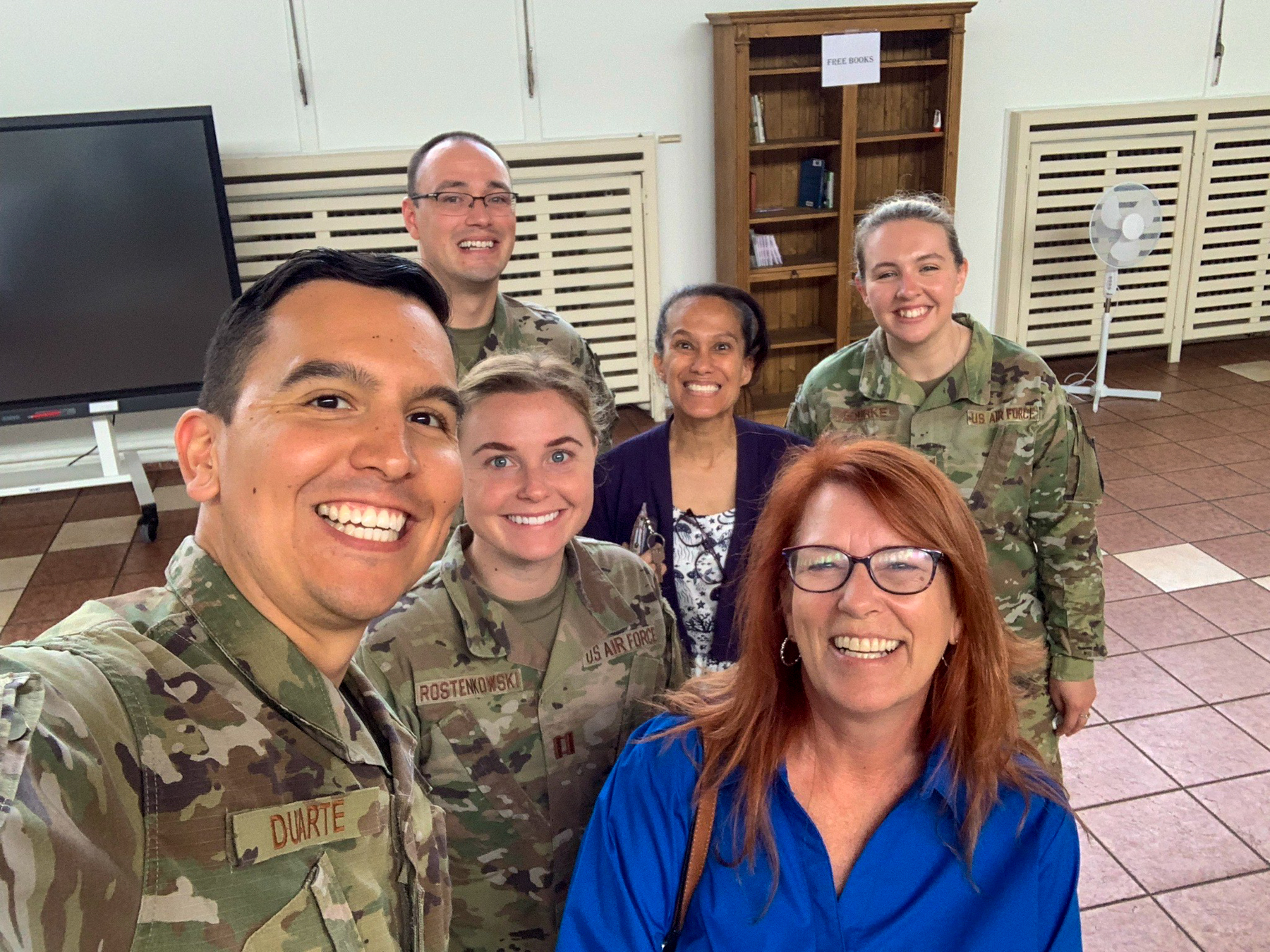
Choosing McAfee School of Theology
After completing his undergraduate degree in 2010 at Vanderbilt University in Nashville, Tennesee, Duarte moved back to his hometown of Huntsville, Alabama. He worked in a law office as a real estate law clerk and then as an AmeriCorps VISTA member helping military veterans obtain jobs, counseling and benefits from Department of Veterans Affairs.
Motivated by his close work with the veteran community, Duarte knew he wanted to be in the JAG Corps and had already been accepted to Mercer Law when he decided to also pursue seminary.
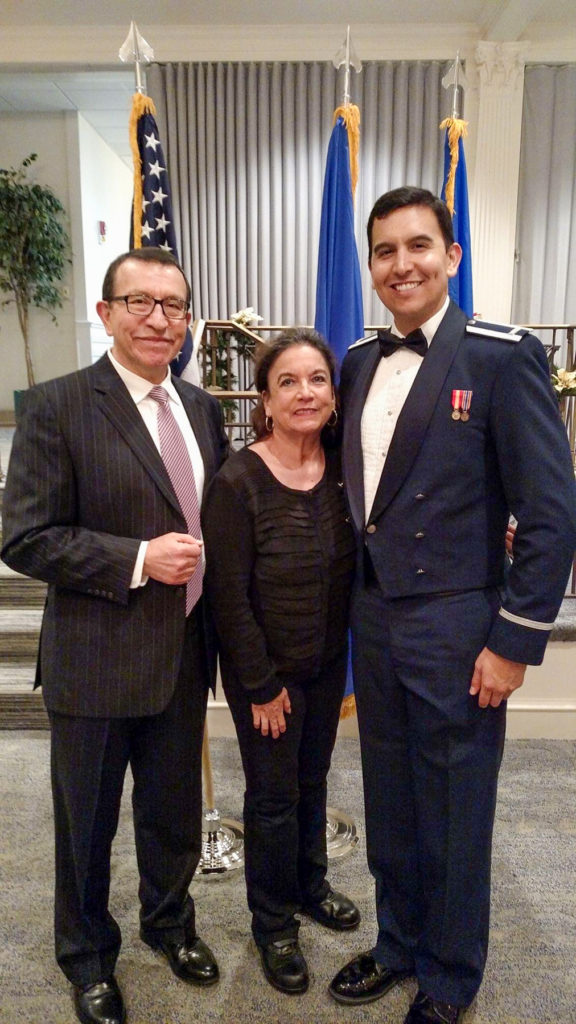
“In the spring of 2013, my AmeriCorps assignment had ended, and I was waiting to start law school in the fall. I decided it might not be a bad idea to make some money during those interim months,” he said. “A couple of years before, my dad and I started singing in the choir at First Baptist Church in Huntsville, and I subsequently became a member. I spoke with the pastor and the youth minister and said, ‘Hey, could I be your summer youth minister?’”
And they said, ‘Oh Fabi, that’s so cool, but usually we hire people who aren’t members of this church, and you just became a member a little bit ago … and we also hire people who are in seminary. You’re not in seminary. And we also hire people who are thinking about going to seminary. Are you thinking about going to seminary?’
“I said, ‘Sure, why not?’”
Duarte, the son of Alberto and Nelly Duarte, grew up in churches big and small with many different traditions and musical styles but not necessarily by design.
“As Colombian immigrants, my parents exposed me to Catholicism in the form of regular trips to Colombia to see our family during Christmas and summer holidays and by having me baptized when I was in elementary school, significantly older than a traditional infant baptism,” Duarte said. “But they genuinely, unknowingly, perhaps even naively and comically, immersed me from an early age in a diversity of religious worlds in Huntsville, Alabama.
“Informed by the religious landscape of Colombia where the majority of churches were Catholic and only some were evangelical, I don’t think my parents fully grasped the variety of denominations represented in our Southern city.”
He attended daycare and participated in Vacation Bible School at a Church of Christ, attended a Lutheran middle school, sang in a Southern Baptist youth choir, and engaged with students at a Seventh Day Adventist university where his mother was a professor. In addition, he and his parents were frequent guests at high Jewish holiday celebrations with close family friends.
In 2013, Duarte began considering McAfee for seminary at the suggestion of the First Baptist Church pastor and the church’s full-time youth minister. After Duarte found out he was accepted to Mercer Law, he decided to visit both schools.
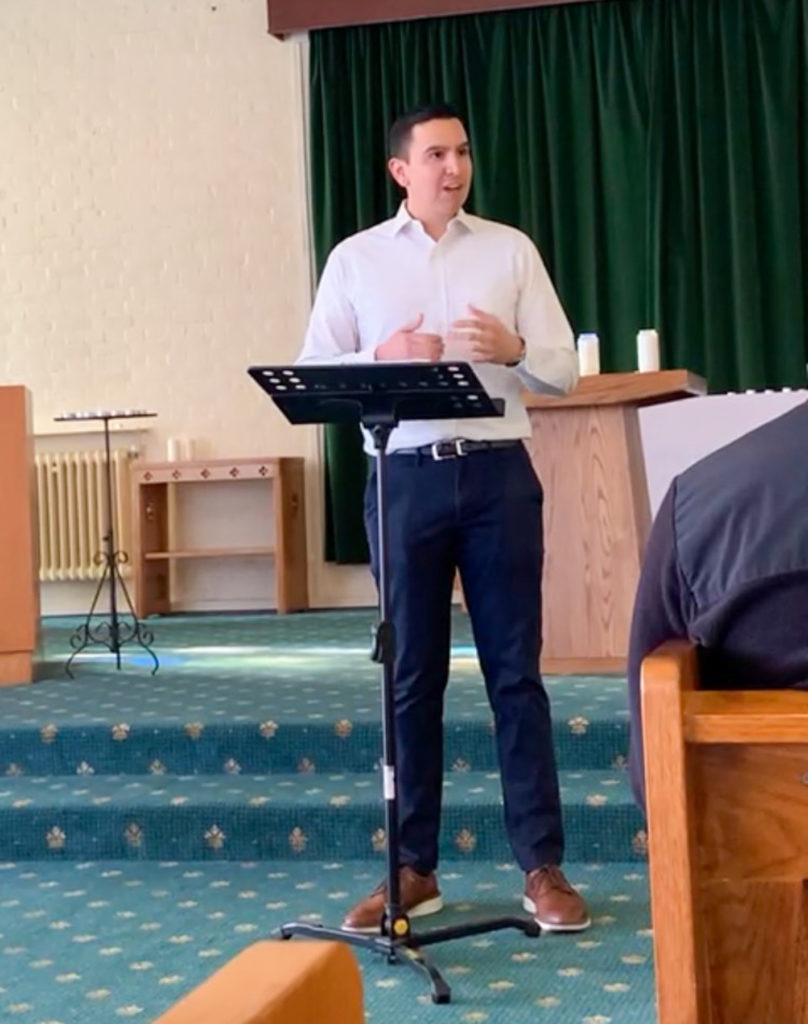
He sat in on a social ethics class comprised of law students and seminarians that was jointly taught by law professor Timothy Floyd and theology professor the Rev. Dr. David Gushee.
“Basically, every week the class studied some polemical issue, some hot button thing like abortion, for example, or gay marriage or divorce or the Second Amendment,” he said. “They would study Scripture references from the Bible and from different faith traditions … and then they would also study landmark Supreme Court cases. …
“It was so cool because then the work was not to just study these legal or religious pronouncements, but then the students would then come up with a synthesis, an analysis, a third way, a better way, based on those principles that were either thousands of years old or decades old but with a new, modern, holistic, spiritual yet informed approach to these things, and my mind just exploded. I had no idea this existed in the South, in a Christian seminary setting.”
Duarte loved the diversity of McAfee, demographically and spiritually. He liked that the school didn’t just study Christianity but examined other faiths, such as Islam, Judaism and Hinduism, as well.
“I thought I knew the church. I thought I had been immersed in lots of different flavors of Christianity,” he said. “After all, I had literally been baptized three times: once in the Catholic church at a young age, once as a teenager in the Church of Christ and once after college in the Baptist church.”
But discovering the McAfee community was just like, ‘Wow!’”
‘We can all be ministers’
Duarte worked out a schedule with the law and theology school deans that would allow him to pursue both a law degree and Master of Arts in Christian Ministry.
He said it was fascinating to inhabit both worlds. He discovered parallels in how lawyers view the Constitution and how theologians view the Bible. Some take a strict constructionist approach while others see them more as living documents written by fallible people and adaptable to ever changing understandings of humanity and the world.
He takes to heart the oath that he recited as a first-year law student.
“I really do like that concept of being a minister of justice. I think it allowed me to see all professions, not just being a lawyer or attorney, as being the hands and feet of our God or divine power,” he said. “We all can be ministers if the work that we do brings us joy and meets the world’s greatest need in that context and helps us and helps others to become the best versions of themselves.”
